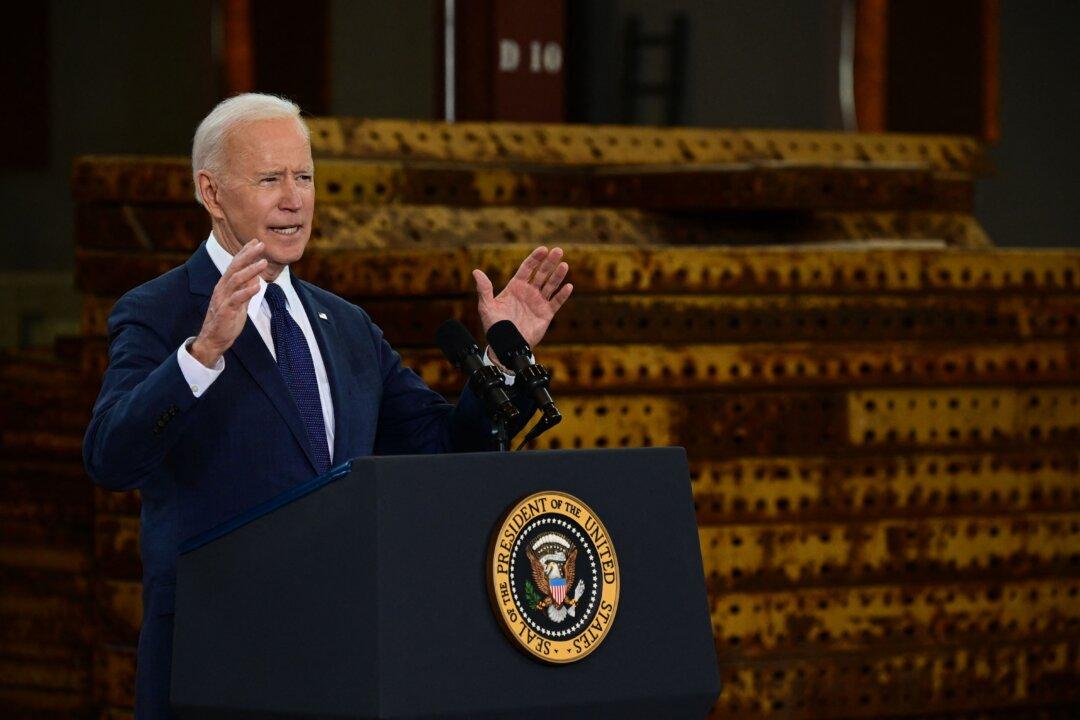WASHINGTON—President Joe Biden is calling on Congress to approve more than $4 trillion in infrastructure and social welfare packages as part of his “Build Back Better” agenda. While his ambitious plans aim to spur economic and job growth, analysts predict the proposed spending and tax increases would shrink the U.S. economy in the long term.
On March 31, Biden announced the American Jobs Plan, his $2.3 trillion infrastructure proposal that dedicates the majority of spending on progressive priorities such as climate change. He described his proposal as “the largest American jobs investment since World War II” in a speech in Pittsburgh on the day of the announcement.





